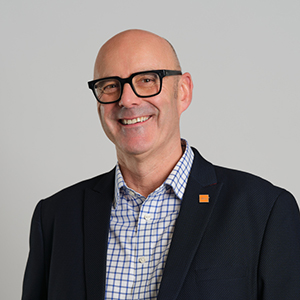ALTC25: building stronger foundations for inclusive, innovative learning


Reflections from Jisc expert-led sessions at ALTC25, sharing insights, tools and frameworks to help you navigate complexity and drive innovation in learning.
This year’s ALTC25 in Glasgow reminded us what makes digital transformation in education succeed: strong foundations, purposeful innovation and collaboration. One message came through clearly. Technology alone doesn’t drive change. It’s people, culture and shared practice that make the real difference.
Jisc subject specialists led sessions on beyond blended, piloting digital learning tools and the extended reality maturity toolkit. In this blog, we share reflections from our sessions, what inspired us, what delegates shared and how our tools can help you turn digital transformation into practical impact.
Inclusive curriculum design: beyond blended in action
By Simon Birkett
Blended learning works best when it is approached strategically and inclusively. I was delighted to see so many delegates join our session on taking learning beyond blended, alongside colleagues from Sheffield Hallam University, Abertay University, Edge Hill University and Edinburgh Napier University.
One of the most inspiring moments was hearing how institutions are applying the four modes of learning and six pillars for designing blended learning in different contexts. Yet they all arrived at similar insights about leadership, shared vocabulary and collaboration. It reinforced the value of a whole-institution approach instead of fragmented approaches.
Joe Wilson, ALT Conference co-chair and session moderator, summed it up in his blog:
“Blended is about taking a whole institutional approach including working on co-creation with learners to improve the learning experience. All directors of teaching and learning, faculty heads and quality managers should know their way around this.”
We also launched our report, 'Beyond blended in action', highlighting ten practical actions from the first phase of pilots. Delegates clearly valued guidance that helps them co-create learning experiences, design for flexibility and embed blended learning across their institution.
If you would like to know more about our work, please get in touch via your relationship manager. I’d also recommend you have a listen to our Beyond the Technology podcast, which includes contributions from our other expert consultant, Helen Beetham.
Purposeful innovation: piloting with intention
By Cat Bailey
Pilots can spark creativity, but can also be tricky to manage. In my session, titled 'Piloting learning technologies: from dreams to reality', I guided delegates through what makes a pilot effective.
The honesty in the room stood out. Attendees shared the highs, trying new approaches, discovering what works and collaborating with new colleagues. They also shared the challenges, like unexpected costs, unclear success measures or ‘stealth’ rollouts. Working through fictional university and college scenarios, it was clear that planning, clarity and collaboration are key to success.
“A digital learning tool piloting framework is not just useful - it’s essential for encouraging innovation.”
Even small pilots can create real impact if approached thoughtfully. Defining success criteria upfront or involving the right stakeholders early can make all the difference.
The key takeaway from my session: if you’re planning a pilot, consider starting small but strategically. Think about what success looks like, who needs to be involved and how you’ll evaluate it.
Emerging technology maturity: scaling extended reality thoughtfully
By Kathryn Woodhead
Extended reality (XR) offers exciting opportunities but scaling it effectively requires planning and collaboration. In my session, I introduced the extended reality maturity toolkit, a free resource to help organisations understand where they are and plan where they want to go.
What struck me most during the session was how differently organisations are approaching extended reality and how universal the challenges are: sustainability, accessibility and resourcing. Using the SCALE model (start, consider, adopt, level-up, expand) delegates explored questions like: Should we create extended reality content or use existing resources? How can extended reality enhance teaching and assessment? What support do staff and students need?
The maturity toolkit sparked conversations about how delegates could begin using extended reality. From their discussions they created SMART goals, such as supporting neurodiverse students transitioning to university and exploring subject-specific applications like business and marketing, turning ideas into actionable plans.
If you’re exploring extended reality, try the extended reality maturity toolkit, join the ALT/Jisc XR community and pick one small step you can take this term. Even modest progress can build momentum towards a more sustainable, inclusive XR strategy.
Collaboration drives impact
Across all themes, one thing was clear: digital transformation thrives when the sector works together. Pilots, extended reality and blended learning all benefit when institutions share insights, test ideas collectively and reflect on what works.
ALTC25 highlighted community-led innovation and how our tools, frameworks and networks help institutions turn ambition into practice. Strong foundations, purposeful innovation and inclusive design together create resilient, future-ready learning systems.
Find out more
About the authors

Simon is a senior consultant in digital transformation of teaching, learning and assessment in higher education. He previously worked in the HE sector as a strategic technology leader, specialising in learning technologies, educational innovation and development, learning space design, audio visual and digital services.

Based in the advice team, I work with members and customers across the UK to share knowledge, advice and best practice around tools and technologies for teaching and learning. This could be in the form of one-to-one support, communities, workshops, blog posts, guidance documentation/ videos or events.
My interests are in online learning/VLEs, accessibility, learning design and innovative tools and technologies such as augmented/ virtual reality and artificial intelligence (AI).